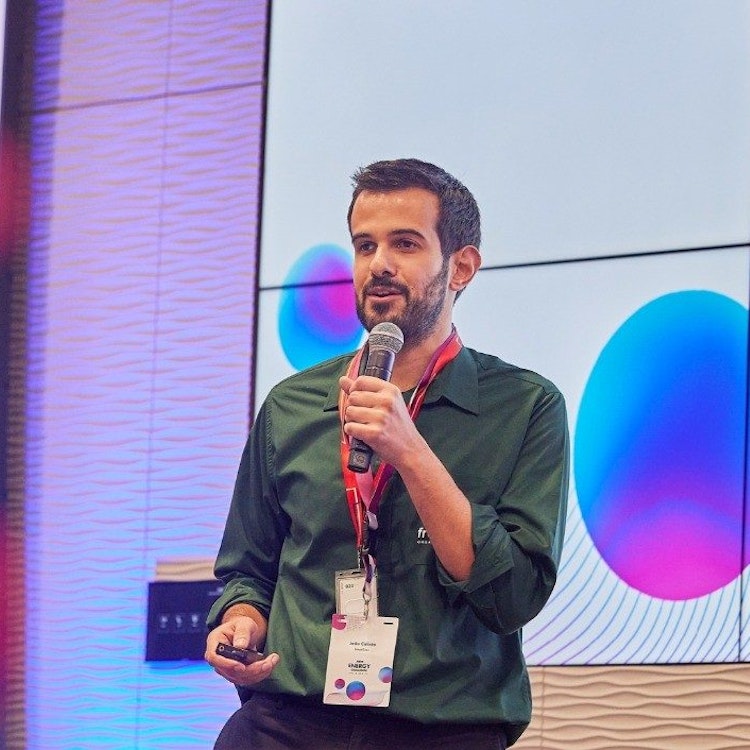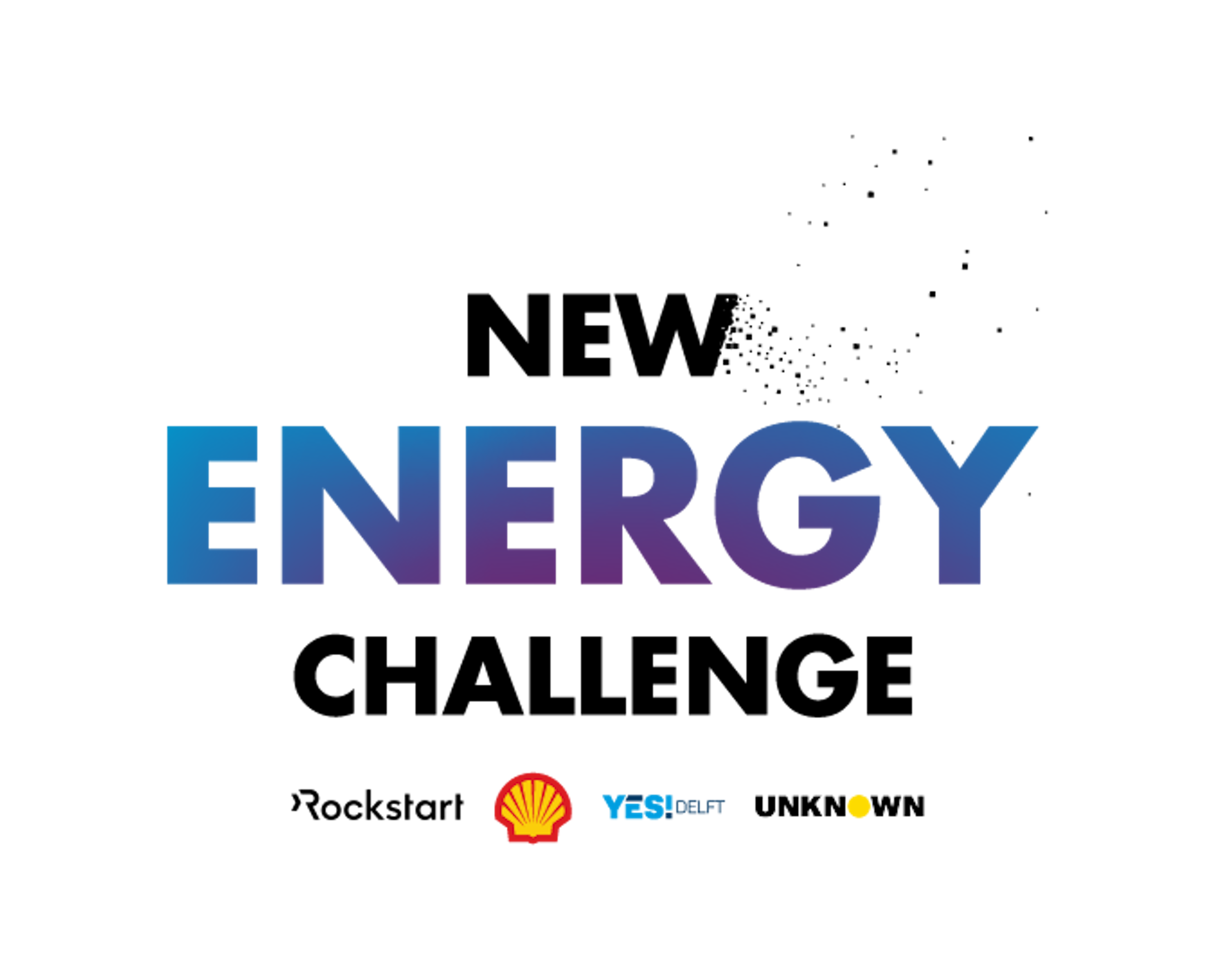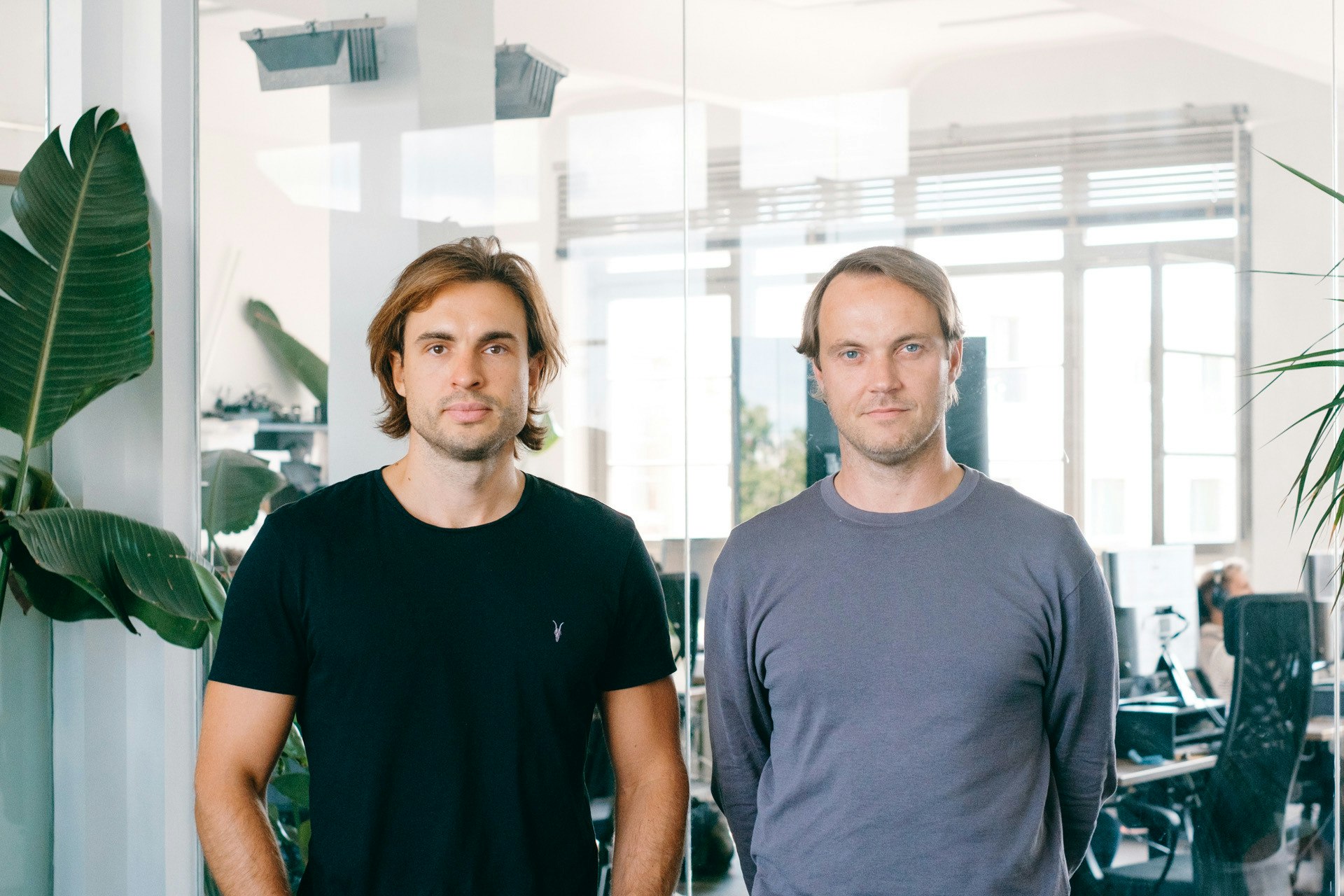To meet shared climate change goals, companies will need to target key challenges in high-emission sectors. But to reach the requisite scale to bring about significant results, some of these climate tech startups will need to leverage corporate expertise, capital and networks.
The New Energy Challenge (NEC) is an annual competition that connects startups in the energy sector to stakeholders that can support their growth, facilitate partnership opportunities and expedite decarbonisation efforts across sectors.
Here’s what this year’s winners — Freetilizer and Kvasir Technologies — are doing and how they are scaling up.
Reducing the carbon cycle of agrifood
Founded in 2021, Porto-based Freetilizer has developed a method which breaks down chicken manure into organic fertilisers.
“Our circular economy technology has two impacts,” says João Calixto, a research and development biochemist at Freetilizer. “It helps to reduce greenhouse gas emissions (GHGs), and reduces agricultural waste, like chicken manure.”
Producing, simultaneously, two outputs, a solid and a liquid organic fertiliser means there are two streams of revenue from the same process.
Freetilizer’s solution mitigates the release of GHGs by storing the carbon that would be naturally lost to the atmosphere in the form of CO2, during the chicken manure decomposition process, and converting it into liquid organic fertiliser. As well as a liquid fertiliser, the company can also produce a solid and nutrient-rich fertiliser, which Calixto attributes to being one of the major advantages the company has over its competitors.
“We’re much faster,” he says. “The use of an enzymatic hydrolysis approach allows us to take just 24 hours to valorise a tonne of manure. This is a competitive advantage when you compare it to a typical composter which requires up to six months and a lot more space.
“The most important thing is that it’s very profitable. Producing, simultaneously, two outputs, a solid and a liquid organic fertiliser, means there are two streams of revenue from the same process.”
This was a significant factor in Freetilizer winning NEC’s GameChanger programme, the award for early-stage companies, says Geert van de Wouw, managing partner at Shell Ventures. He also attributed its success to its ability to demonstrate how its product would meet current regulatory guidelines.
“They’re still at an early stage in the prototype phase, but they have validated their performance and the non-toxicity of their fertiliser to crops according to EU regulations,” says van de Wouw. “Also, it’s a rather compact process. It doesn’t need lots of ‘pots and pans’, making it relatively low cost.”
Biofuels for heavy transport
Kvasir Technologies took home three awards at this year’s NEC, winning the public choice awards and a membership for the Energy Transition Campus Amsterdam (ETCA). This gives Kvasir the opportunity to collaborate with other climate tech founders and researchers at Shell’s innovation facility in Amsterdam, and the opportunity to work with Shell to shape and execute a potential collaboration.
Our technology is the only feedstock agnostic process out there that can achieve both high yields and a fuel quality that does not necessitate further processing or upgrading.
The Danish startup, founded in 2018, has developed a process for converting bio-waste into a fuel which can be used as a supplement, or direct replacement, for fossil fuels in large marine vessels. Crucially, there is no limit to the type of biomass that can be used as a feedstock to produce the biofuel.
“Our technology is the only feedstock agnostic process out there that can achieve both high yields and a fuel quality that does not necessitate further processing or upgrading,” says Joachim Bachmann Nielsen, Kvasir’s CEO and cofounder. “We can uniquely use the fuel directly as a drop-in fuel for the maritime sector.”
There is increasing demand for less polluting fuels within the sector. The International Maritime Organization is calling for the industry to reduce its emissions by up to 40% by 2030. Currently, naval transportation accounts for 3% of all GHGs.
“The potential is huge. Realistically, more than half of heavy transport could be run on biofuels as long as the feedstock used is sustainable and scalable,” says Nielsen. “The molecular structure of biomass is incredibly close to the fuels we use in heavy transportation already. This yields a much more efficient process which directly translates to better sustainability and economic viability of such biofuel technologies.”
While there is a clear opportunity, Nielsen notes that scaling is difficult in this space, as there are many regulatory hoops to jump through. Van de Wouw says the Kvasir team were very aware of the potential risks during the judging process, but their ability to present a coherent business plan in the face of those pitfalls, through their industry knowledge, was particularly impressive.
“We felt there was a strong team that seemed to be very knowledgeable, both technically and commercially. They had a real grasp of the issues,” says van de Wouw. “They have the expertise to succeed.”
Plans for growth
Following their success, both companies are looking to expand their reach over the next 12-24 months.
“[Winning NEC] is an amazing validation both for the Kvasir team who have all contributed to where we are today,” says Nielsen. “But it is also a win for our different stakeholders and our investors. We will leverage this unique opportunity to work closely with Shell but we will also continue to expand existing relationships in the energy space.”
The power of most startups is their focus on solving a problem within a particular vertical.
Nielsen says that Kvasir Technologies plans on announcing a Series A round in 2024, which will help to scale the gap from demo to a first-of-its-kind commercial facility. In the future, the company will also explore the potential for the use of its technology in other forms of heavy transport, including aviation.
Calixto says that receiving the award was gratifying, for him and his team. They too are planning to raise funds over the next year.
“Sometimes when you are developing something that is new, you can get demotivated if you don’t know you’re on the right path. This recognition is giving us the motivation to continue to change this sector,” he says.
“We want to leverage the expertise and the networks of the NEC supporters to increase our market presence and to explore new opportunities at this moment. We are fundraising to demonstrate the technology working in a relevant environment to potential clients and the end users, the farmers.”
These goals should become easier thanks to the ongoing support of their corporate partners and sponsors. Van de Wouw explains that by working together, large-scale energy companies and their younger partners can harness innovation at the necessary scale to actually affect change.
“The power of most startups is their focus on solving a problem within a particular vertical,” he says. “We have scaled these technologies within a refinery or chemical environment before and we know what kind of safety standards are required. We know how these products can be sold into the market.
“You have to combine the strengths of both worlds in order to make progress.”




